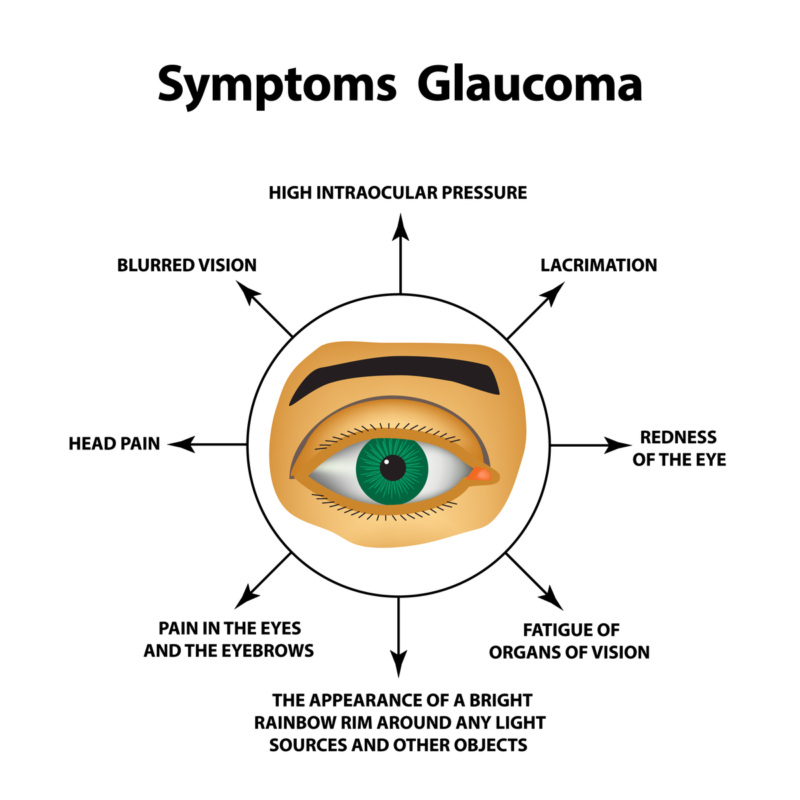Typically passed down genetically, glaucoma is an eye disease that involves harm to the eye’s optic nerves. Intraocular pressure, best described as fluid pressure within the eye, can act as the catalyst for causing damage to the optic nerves. This is dangerous because a major function of the optic nerves is to send certain images to the brain for understanding. Glaucoma is a disease that can progress and ultimately lead to irreversible blindness if not treated. Most people with glaucoma have elevated intraocular pressure.

Types of Glaucoma
Believe it or not, glaucoma comes in a couple different forms.
-Open-angle glaucoma
This form of glaucoma is the most common. The way the eye is supposed to drain out may appear fine, but the fluid does not drain out properly.
-Angle-closure glaucoma
Also referred to as acute glaucoma or narrow-angle glaucoma, this type of the eye condition is where the eye is unable to drain effectively. In this case, it is due to the iris and cornea being too close. This can also be related to farsightedness and cataracts disease, but nonetheless, it can be an issue regardless. With the iris too close, pressure is able to rapidly build up in the eye.
Symptoms
Oddly enough, there aren’t many symptoms during the onset of the eye condition. This is why it’s imperative to get an eye exam every year or two, especially if glaucoma is in your genetic background.
If you experience any of the following symptoms, which may indicate you have glaucoma, then you should check with an ophthalmologist:
-Fuzziness and “halos” surrounding lights
-Loss of peripheral vision
-Loss of sight
-Red eyes
-Nausea
-Pain in the eye
Treatment
The best way to protect yourself from allowing glaucoma to get worse is to visit an ophthalmologist. There are several treatment options that an eye care specialist may suggest, including eye drops, microsurgery, and different types of laser glaucoma surgery. There are several glaucoma surgery procedures depending on the type and severity of glaucoma.
Though glaucoma cannot be prevented, the eye disease can be treated in a number of ways. The reality is that the earlier you can detect glaucoma, the better the outcome will be and the more easily you will be able to manage it. If you have concerns about glaucoma in you or someone else’s eyes, then begin with the next step of proper detection at an eye clinic with an Ophthalmologist.






